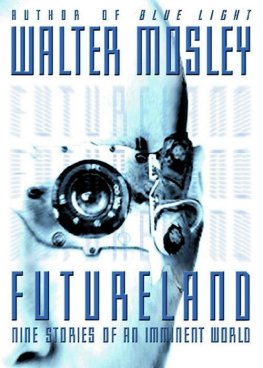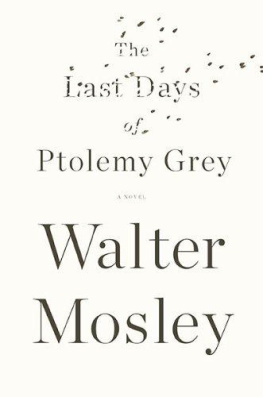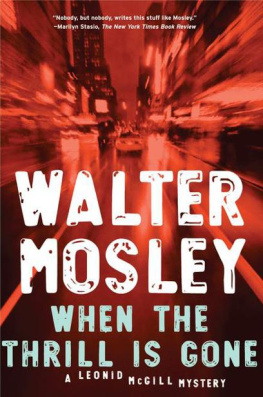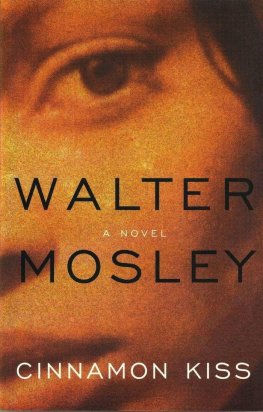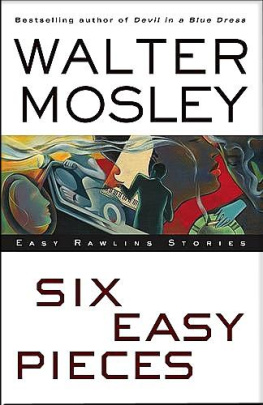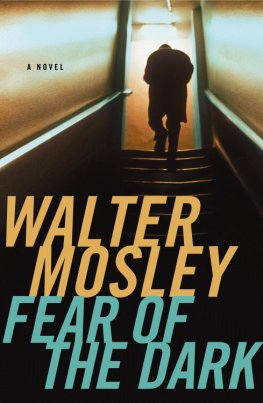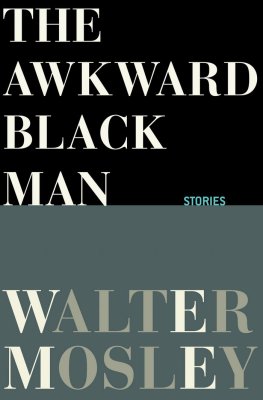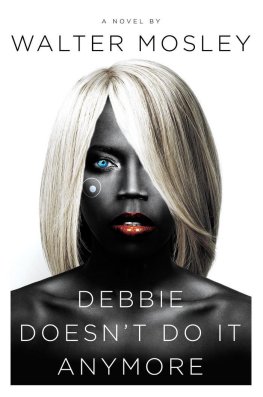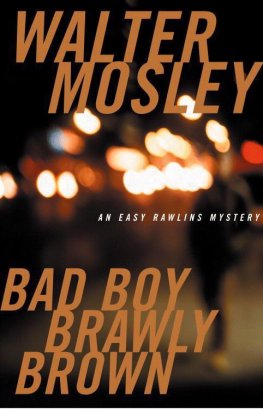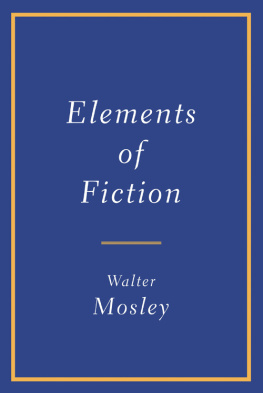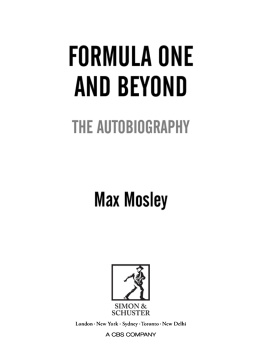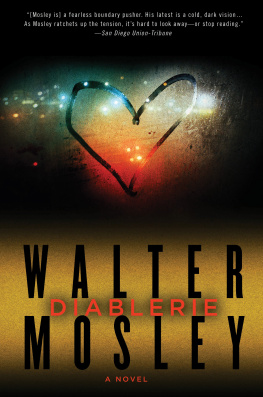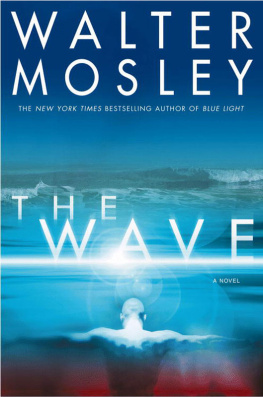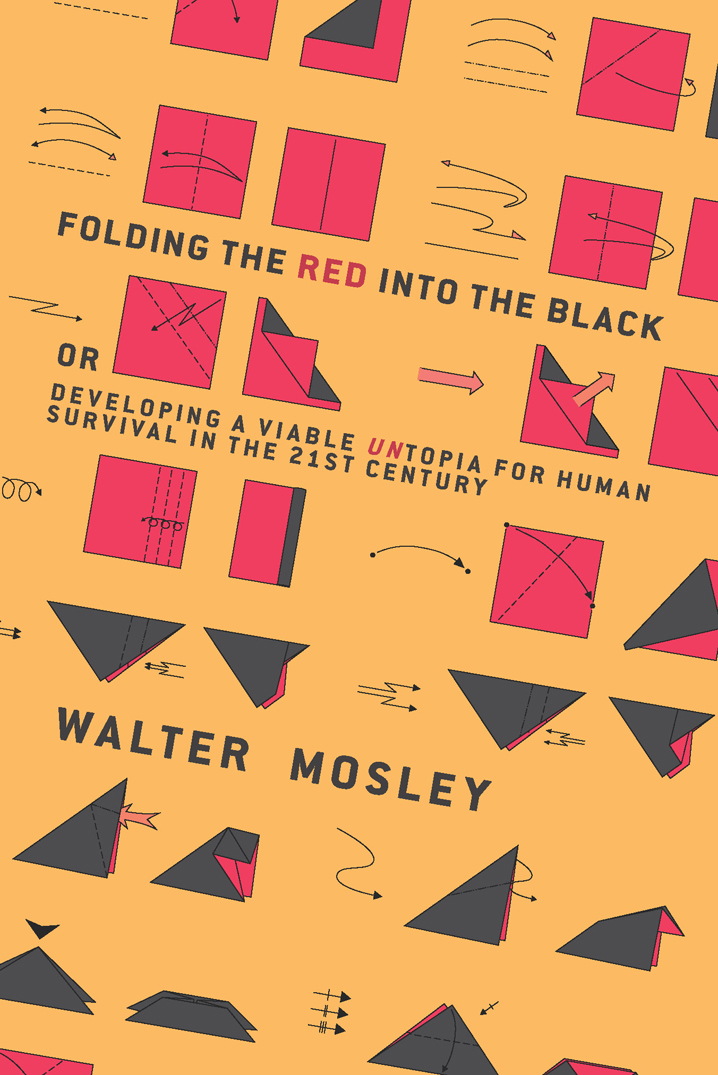

2016 Walter Mosley
Published for the book trade by OR Books in partnership with Counterpoint Press.
Distributed to the trade by Publishers Group West
All rights information:
All rights reserved. No part of this book may be reproduced or transmitted in any form or by any means, electronic or mechanical, including photocopy, recording, or any information storage retrieval system, without permission in writing from the publisher, except brief passages for review purposes.
First printing 2016
Cataloging-in-Publication data is available from the Library of Congress.
A catalog record for this book is available from the British Library.
Text design by Under|Over. Typeset by AarkMany Media, Chennai, India.
10 9 8 7 6 5 3 2 1
ebook ISBN 9781944869212
To my good friends
Jenisha Watts and Rachel Eliza Griffiths
Contents
Table of Contents
Guide
About forty years ago, I enrolled in a Ph.D. program in political theory at the University of Massachusetts at Amherst. There, I studied the philosophies of politics, culture, and, more abstractly, the struggle of humanity against its own nature. The thinkers I explored were mostly Western, white, and male, but the ideas had the appeal of universality and contained at least a grain of hope for everyoneespecially the denizens of the modern world where political and economic isolation is pretty much impossible.
My doctoral education was not in any way complete or even rounded, but I applied myself as well as I could. I learned some things about the study of modern political systems of thought and how these thoughts helped define and explain political culture as it lurks in the streets of everyday life.
After three years I left the program. I loved reading everyone from Herodotus to Hannah Arendt and, even more, I enjoyed the long discussions about how the world was reforming itself according to hidden forces, unconscious instincts, and alienating systems of economics. But one day I realized that my studies were all about self-gratification and would never lead to a job.
The specter of lifelong unemployment dawned on me when I was sitting in a class about the Peloponnesian Wars. The aged professor was European, Harvard trained, and had spent his entire university career studying Thucydidesmostly in the original Greek. Watching the lecturer, slightly bored by the rendition but not the subject, I realized that the only profession I could hope for was doing what he did, that I would never be as successful as he was, and that even if I could have his jobI didnt want it.
So I left the university and went back to my old jobcomputer programming. The years passed and one day I decided that being a writer of fictions might fit my nature and I went off on that tangent with somewhat more success than I ever had in school.
But the ideas I was introduced to in Western Massachusetts never left me. I would often find myself thinking about a world that could be so beautiful in a world where unnecessary suffering was the norm.
I learned at university that talking about a problem often conjures potential solutions and that writing about that problem often creates conversation. I knew that I couldnt cure the environment, answer the conundrum of religious conflict, or make people into a better class of beings; but I could talk a bit about the alienating systems of capitalism and socialism with the hope of bringing up a discussion about the possibility of dtente between these oppressive rulebooks that, in their systemic natures, could not, on their best days, appreciate a good laugh or a heartfelt deathbed goodbye.
And so I wrote the following monograph. I have tried to lay out what I see as false conflicts between these systems of human economics and also the flaws in such systems where they are used to rule and otherwise dominate human nature. I offer some solutions but the main thrust of the argument is to start some talking and thinking about what we can do to make our lives, all our lives, better.
Before we begin to explore this broad, unwieldy topic I would like to present a word that I feel needs to be added to the lexicon of modern political language; that word is untopia.
Most people are aware of the term coined by Sir Thomas Moore: utopiaa community or society possessing highly desirable or near perfect qualities. My argument is, in part, that the many attempts to attain this perfect state of social harmony have been, paradoxically, the cause of dystopic malfunctions in societies around the globe from at least the beginning of the twentieth century until right now. Our misplaced faith in science and systemic social and economic formulations has been the cause of genocide, war, famine, and deep, deep enmity between peoples who should by now have learned to get along despite our natureswhich are anything but perfect.
We are ambivalent, combative, stubborn, wildly changeable beings that have the natural schizophrenic facility to love and hate at the same time. We respond, with Pavlovian predictability, to invisible forces such as the economic infrastructure, ever-changing technology, and unconscious instincts, all the while believing that we are fully conscious beings making decisions based on logic arisen from observations informed by eternal truths.
This faith in consciousness is, in the mildest language possible, misplaced.
The institution of the term untopia is my attempt to dismantle our misguided beliefs in fairytale-like perfection and allow our conflicted natures to develop a social and political world fit for human habitation. We need a society that understands the wide palette of human limitations and foibles as well as its potentials and possibilities.
We need to throw off the unbearable weight of bureaucratic capitalist and socialist demands; demands that exist to perpetuate these systems, not to praise and raise humanity to its full promise.
And so I propose the untopia. This is not a physical place, not an eternal city but rather a frame of mind that has as its goal the dismantling of expectations of perfection when it comes to the working of the quasi-philosophical systems of government.
The untopia announces that we are unruly beings that need time to play and room to move.
The twentieth century was in part comprised of an unavoidable struggle between the labor-laden architecture of capital and the needs of the workers and consumers living inside that virtual, and ever-changing, structure. There were wars and revolutions, despots (on both sides), mass executions, an all-out attack on the environment, fast evolving technologies, and mutations of religion and religion-like allegiances. National policies have turned themselves inside-out, philosophically and politically speaking, to fit their methods of growth and attempted survival into outmoded economic structures. We have shaken the dead hand of the past and, in doing so, have failed to make the appropriate, the crucial changes that must be enacted if we do not want to repeat, and outstrip, the crimes of the bloodiest century in human history.
There are many other conflicts that we have inherited from the previous, painfully dialectical epoch. There are the facts of ongoing mass murder, racism, sexism, homophobia, religious conflict, and archaic notions of nationalism and even tribalism that have crippled our potential, robbing the great majority of our children of even the hopeful glimmer of an earthly Eden.


